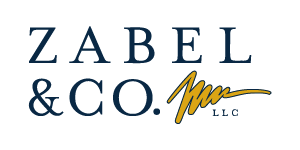You started a business as a source of income. But with the right planning, it can be your legacy. When’s the ideal age to start thinking about retirement as a business owner?
The sooner you start to think about your succession plan, the better. Here are some tips to help you think about long-range planning as a business owner.
Consider Your Long-Term Plan
Forget about the business for a moment. What are your long-term personal plans? For example, do you have an age at which you’d like to retire? Do you have specific goals for life post-retirement?
These questions naturally depend on your personal financial planning. You’ll need to ensure that you have sufficient funds to carry you into retirement, which means you’ll need to develop a plan to save for a retirement “nest egg” to supplement other sources of income like Social Security, annuities, or a retirement account.
That’s why it’s never too early to start dreaming about retirement. As a business owner, your retirement planning will have a direct bearing on how involved you are in your company over the long term.
Having a solid personal plan will give you more flexibility regarding the timing — and urgency — of your business succession plan.
Plan Your Exit
What comes next for your company itself? This is where your business succession plan comes into play. You’ll need a strategy that allows you to gracefully exit your business while determining your company’s future.
Possible exits include:
- Selling to an employee
- Selling to a business partner
- Selling a book of business
- Passing your company on to your children
- Selling your business to another company
If your company is to remain a family-owned business, you’ll need to have some very pointed conversations with your potential heirs. Your children may or may not be interested in taking on the family business, which could prompt you to consider a different exit strategy altogether.
Depending on your timing, you may also need to communicate this plan to your employees or shareholders so they can prepare for a coming transition as well.
Maximize the Value of Your Company
Do you know how much your business is truly worth? This is an important question when it comes time to sell your company. Unfortunately, many entrepreneurs overestimate the value of their companies, which can lead to a kind of “sticker shock” when they learn how much their company might sell for.
Fortunately, you can maximize the value of your business with the right planning, which includes:
- Developing a strategy to increase sales
- Tapping into new markets
- Acquiring new equipment or commercial real estate
- Creating standard operating plans that make it easy to transfer ownership
All of these strategies can make your business more attractive to buyers, thereby increasing your company’s potential value. But implementing them can take time. Making these things a priority now can help you build value in your company once you reach retirement age.
Standardize Your Processes
As an entrepreneur, it can be easy to handle many of your internal processes. But that can create a company that depends heavily on you. If you wish to create a succession plan, you’ll need to develop a set of standard operating procedures for both your core processes and administrative procedures.
Creating standard processes will make it easier to delegate tasks to other employees. It will also make it easier to train a successor once you retire, ensuring that your company will continue on as you intended. Even if you choose to sell your company, having a set of standards in place can help you attract the right buyers.
It’s never too early to start developing these standard procedures. In fact, the sooner you standardize your processes, the sooner you can start delegating. Prompt planning will allow you to grow and expand, which is another way to increase your company’s value.
Get Help with Your Exit Strategy
Our team is committed to providing entrepreneurs with the tools they need to thrive in and out of retirement. We can help you set up an exit plan while maximizing the value of your business. Reach out today to discuss your options.

